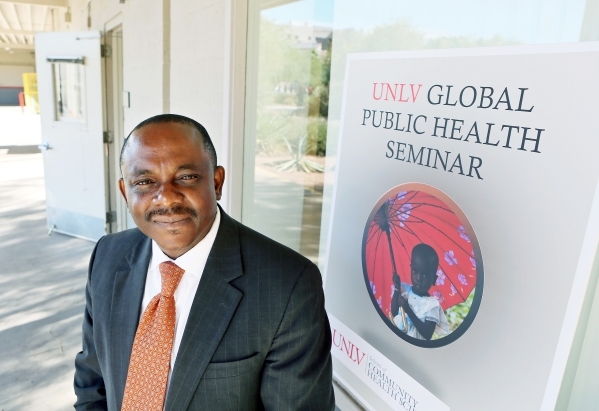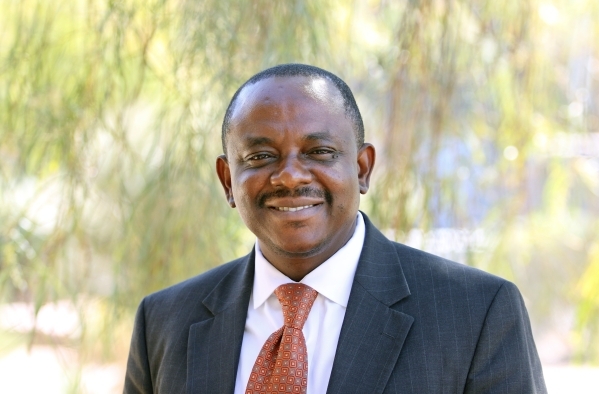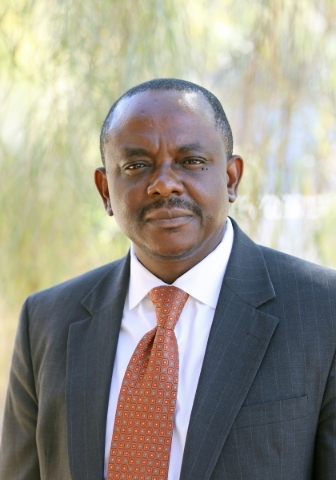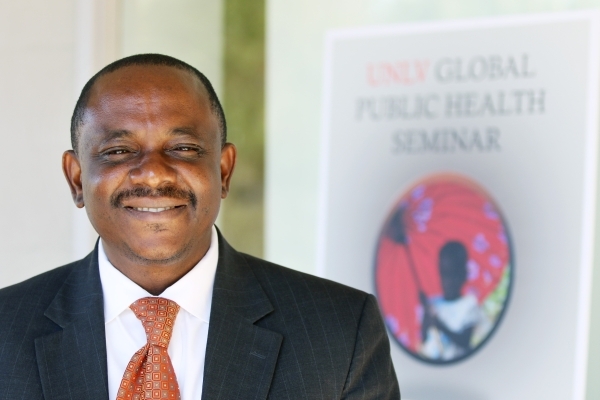UNLV professor uses Nigerian churches to battle HIV spread
A promising new method for battling the spread of HIV in Africa was inspired by an unexpected source 8,000 miles away: a baby shower at the home of a Las Vegas professor.
Dr. Echezona Ezeanolue — who leads health research efforts at the University of Nevada, Las Vegas — is earning praise from medical experts nationwide for coming up with a more effective way to convince pregnant women in his native Nigeria to be tested for the disease. The transmission of HIV from a mother to her unborn child is highly preventable, and identifying infected women is crucial in quelling its spread.
Outreach is especially important in sub-Saharan Africa, where mother-to-infant transmission is a top source of new infections because only about 14 percent of pregnant women get screened, according to the United Nations Children's Fund, a New York-based humanitarian group.
Ezeanolue had long sought to find a way to boost the country's testing rate when inspiration hit in 2011 after his wife threw a party to celebrate the upcoming birth of their fourth child.
"My wife said to me, why don't we use baby showers?" Ezeanolue said last week. "It was a way to remove some of the barriers, like stigma."
Ezeanolue eventually launched a research project in January 2013 using communal baby showers as an avenue to teach pregnant women about the importance of testing. Toconvince women to get tested, Ezeanolue and his team of 10 fellow researchers organized parties led by religious leaders at worship sites in Nigeria, a country with high church attendance rates. Faith-based organizations are highly influential across Africa, and they play a critical role in the fight against AIDS.
The team conducted a randomized trial using 3,000 participants at 40 worship sites in rural southeast Nigeria. Pregnant women attending half the churches participated in a monthly baby shower where they were given delivery supplies and offered free on-site screenings for HIV and other diseases. A control group of pregnant women attending the other 20 churches also attended baby showers but they did not have access to screenings. Instead, they were simply encouraged to pursue prenatal care on their own at health facilities where HIV testing was available.
Early findings published this month in a peer-reviewed medical journal show that 92 percent of the women who participated in the first group received an HIV test, while 55 percent of women in the second group got tested.
"The church was part of (the women's) community and a very important part of what shaped their attitudes," said Dr. Trudy Larson, who heads the School of Community Health Sciences at UNR and collaborated in the project. "(Ezeanolue) believed — and rightfully so — that by having a (religious leader) help, it would be more of a normal way to approach pregnancy care that made it much more attractive and much more acceptable to those folks."
Ezeanolue's project was funded by the U.S. President's Emergency Plan for AIDS Relief and the National Institutes of Health. It was conducted with the help of scientists from New York University, University of Nigeria and University of Nevada, Reno.One of the study's 10 secondary authors is Ezeanolue's wife, a Las Vegas-based physician.
Ezeanolue hopes to use his system in other countries that are battling high HIV rates. For now, he has his sights set on India.
"I think what made this project so interesting to me is that Dr. Ezeanolue identified that pregnant women are routinely going to these churches," said Dr. George K. Siberry, a medical officer at the National Institute of Child Health and Human Development at the NIH. "It was a very innovative way to use a community-based, faith institution-based approach to testing that had never been tried in Nigeria before."
Contact Ana Ley at aley@reviewjournal.com or 702-224-5512. Find her on Twitter: @la__ley






















